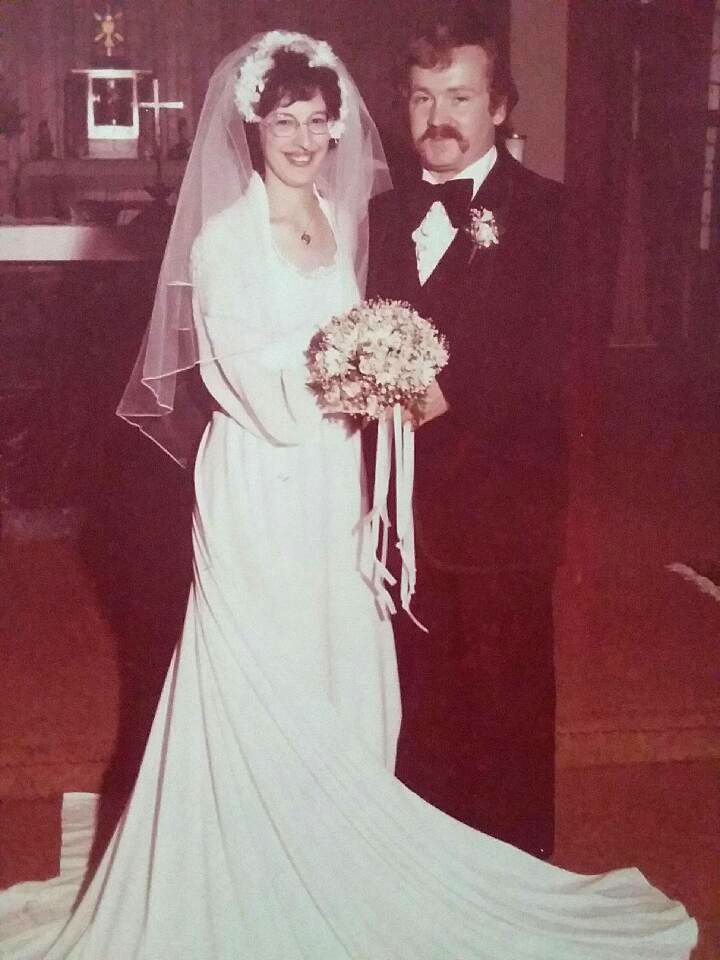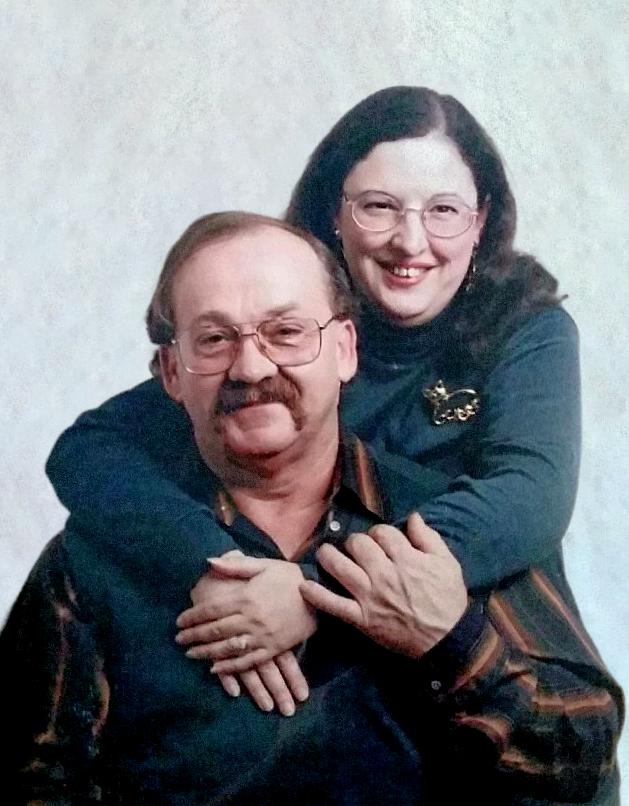Margie Hults is a writer with dedication. I met her in an online workshop that I facilitate with Mission Belonging twice a month, called Military Voices, and she’s attended almost every session over the past year. In each workshop, I give a prompt, which participants then write to for about fifteen minutes. I’m always amazed by what Margie produces and shares with the group. Many of the poems she has written with us detail the challenges she and her husband, an Army veteran, have navigated while living with his service-connected disabilities. I felt that others in the military community might benefit from reading her moving words. What follows is a short interview with Margie, along with two poems she wrote in our workshop.
Kevin Basl: Tell us a bit about yourself. How did you become a writer?
Margie Hults: I grew up in Western New York, where I fell in love with the written word at the age of twelve. My seventh grade teacher inspired me to follow my passion for writing into high school, where I took creative writing classes as electives. After high school, I got a job at a financial institution as a secretary. I learned about a writer’s workshop at the University of Rochester and submitted two chapters from a manuscript I was working on. I was thrilled to have been one of those chosen to attend. During that time of my life, when I was burning the candle at both ends, I sold a few poems to magazines and published a book of poetry in 1976 called The Follower in Green. I’m currently working on a collection of writings to memorialize my husband’s and my journey through his disabilities. Finding Mission Belonging has not only been cathartic for me, but continues to inspire me to remember who I am, what I love, and how to share those experiences.

Margie and David at their wedding, 1978
Margie and David at their wedding, 1978
KB: Your husband is a Vietnam War veteran. Can you talk about his service and how it has affected your lives?
MH: I met my husband, David Hults, in 1977. He was a U.S. Army Veteran (E4), who served as a mortar man with the 25th Infantry in Vietnam from 1969 – 1971. During the course of our forty-six-year marriage, Agent Orange has wreaked havoc on his body: diabetes, heart disease, failed kidneys, skin conditions and, ultimately, the amputation of his right leg. Having spent his entire career working for himself as a building contractor and home remodeling specialist, these health conditions changed everything for him. And becoming his caregiver has been the most difficult—and yet the most rewarding—experience of my life.
KB: You wrote a poem in our workshop called “Perspective,” about your grappling with the amputation of his leg. What was the experience like writing that poem and sharing it in the workshop?
MH: At first, I didn’t think I could find the words to describe how he must have felt to lose a leg. I only knew how I was mourning the loss. When it occurred to me that I had to write it from both perspectives, the words just poured out of me. The hardest part was reading it out loud in the workshop because it suddenly became a reality to me.
KB: Another piece you wrote in the workshop, “Magnificent Hero,” reads like an ode to your husband. You use the word “courage” in the piece, and it seems to take on a meaning that is different from what we usually associate with veterans and the military. Can you talk about what courage means within the context of this poem?
MH: I wanted to focus on all that he had endured medically. He had multiple surgeries, for his heart, kidneys, vascular system, and cancers, along with the amputation. He also had numerous infections along the way. I really could not fathom how anyone could survive all of it and not get depressed. I’m so proud of him.
KB: What advice would you give to other veteran caregivers? How can writing help them navigate the experience?
MH: When I first became his caregiver, it didn’t seem too difficult. I created a form for the medications he had to take and what time of day he needed to take them, so I could mark them off as I dispensed them. I also created a form for his vital signs and took readings twice a day to keep track of blood pressure, oxygen, glucose, and weight. There were days when he would sleep all afternoon, so I would use those times to cook, clean, or do laundry. I never knew when he might have a bad night, so I learned to catch a nap whenever I could.
I still wasn’t finding time for myself and it was taking its toll. So I started doing meditation, doing jigsaw puzzles, and I found the writing workshop. Just being able to write about my experiences and share them with others has given me a release I never expected. I look forward to every session!
Perspective
When my husband lost his leg, I mourned.
But he did not.
He told the doctor, “Good! Take it!”
He learned how to move from wheelchair to bed,
From bed to bathroom, and to the recliner.
He worked hard, while my heart was in my throat,
Fearing he would fall.
He learned how to get into the car,
Using step stools, planks, and pillows.
Then he mastered it without the props.
I cried when he wasn’t looking.
Anxious to get a prosthesis,
He worked hard with the physical therapist.
But the prosthesis didn’t fit,
Continued to cause pain.
I was depressed, he was not.
He kept going.
And he kept me going, too.
He taught me how to use a drill
So I could help him install grab bars
Around the house.
He propelled me to take on cleaning projects
Because he knew organization would help
Keep me sane.
We turned our home office into a writing haven,
A long-imagined dream of mine.
We read meditations each morning
To start the day on a positive note.
And, whenever faced with a difficult task,
Prayers were answered
By a neighbor or a friend.
Losing his leg was a tragedy
But in its wake were many blessings.
I don’t worry or cry about it anymore.
He will master each step at the right time.
Magnificent Hero
The next time I look at my husband
I will not notice the bruises, stitches, and swollen areas
That once held malignant melanoma. I will not see his right leg,
Severed below the knee, covered
By a grey sleeve. I will not hear his oxygen concentrator,
Keeping a monotonous tune. I will not
Smell the antiseptic hospital odors. I will not taste the salty tears
That run down his face
As I try to kiss them away. Instead,
I will notice the still-bright light
In those eyes, and the heart that swells
With determination and courage. He is still at war.
But he is not diminished in my sight.
He is magnificent
And I applaud him.

Margie and David on their 20th wedding anniversary, 1998
Margie and David on their 20th wedding anniversary, 1998

Kevin Basl is a writer and musician living near Ithaca, New York. He was a mobile radar operator in the U.S. Army. Over the past decade, he has taught many writing and art-marking workshops for service members, veterans, and their communities. He’s author of Midnight Cargo: Stories and Poems (Illuminated Press), and he’s co-author of a chapbook of poems: Corn, Coal & Yellow Ribbons (Out of Step Press).
Mission Belonging’s Military Voices workshop with Kevin Basl takes place virtually on the first and third Thursday of every month at 3:30 pm Eastern Time. Learn more and register here.

Thank you, Margie. Very emotional for me. Tom’s courage is extreme. Unbelievable. He has suffered years as the results of serving his Country – The United States of America. His dedication to his career, life and to you is beyond imagination. And still going. I’m proud he is my brother. Many thanks to Kevin Badl and Mission Belonging.
Quite remarkable how he has navigated through so many issues. Very inspiring writing.
I have known and loved Margie for a long time, since working with her at a local law office for several years …. We used to ride into work together on those stormy winter upstate New York days! When she and tom moved south (pretty much I believe because of Tom’s problems) my husband Bob (also a Vietnam vet) and i drove to their new home and spent several days just enjoying and reminiscing with both of them. Time obviously changes things but we have always kept .. Maybe .. A distant continuation of our friendship, what a joy it has been to read “her story”! I am so very proud of Margie and her writing!
Margie – I love that you wrote from both perspectives, an inspired choice! Your writing provided me a glimpse of the courage you both share as well as your determination to carry on, to make every day count. That’s a helpful message to us readers as we deal with life’s inevitable challenges. Thank you.
I must also admit that I’m a bit envious of the writing space you co-created. Am working to expand my creative community, and CBAW is an important part of that. I met Seema Reza years ago at an in-person workshop and was hooked. Online/virtual workshops have been excellent, and I’m now working to add more in-person activities. I hope to bring a group of fellow vets to this year’s Day of Belonging!
Keep shining and (please) keep writing!
Aunt Margie and Uncle Dave,
You are an inspiration to me as I have watched you navigate so many difficult challenges over the years. Caregiving is both rewarding and extremely challenging physically and mentally. We know how hard you both work to overcome each and every challenge.thank you for sharing your story with others. Keep working hard and keep writing! You have a gift ❤️